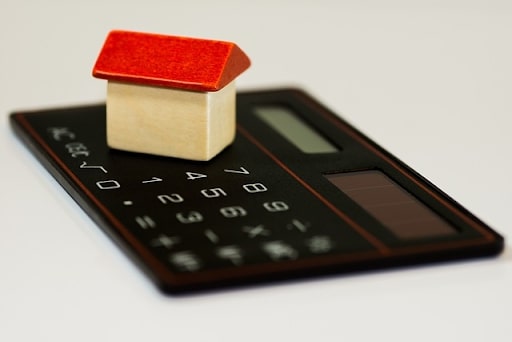It’s that time of year again—no, not the holidays, but something that affects your finances almost as much: tax reassessment. This article is here to break down what it means, how it works, and what you can do if you disagree with your reassessment. It’s crucial info for property owners, so read on to avoid unwelcome surprises in your mailbox.
Overview of Tax Reassessment
The tax reassessment meaning is essentially the process where local governments re-evaluate the value of your property to determine how much you’ll owe in property taxes. They don’t do it every year, but when it does happen, it can significantly affect your finances. During a reassessment, an appraiser may evaluate property values in the area, consider recent sales data, and sometimes even inspect your property to establish its current market value. The updated assessment could mean a property owner either owes more or less in property taxes.
Difference between Calendar Tax Year and Tax Reassessment Year
Now, don’t confuse the calendar tax year with a reassessment year. The calendar tax year is simply January 1 to December 31, which is the usual period for considering income taxes and other annual financial responsibilities. Reassessment years, on the other hand, can vary by county and generally occur on a 4-8 year cycle. So while you’re filing income taxes every year, you won’t have to sweat about property tax reassessments quite as often.
When Do Reassessments Occur?
In North Carolina, the month in which tax reassessments occur can vary by county. Property owners should reference their county website for more information. However, most counties aim to send out notices by late January so you’ll want to keep an eye on your mailbox around then. If there’s a change in your property taxes, you’ll receive a formal notice outlining the updated valuation and the new tax amount.
What Happens at a Reassessment?
The reassessment process may seem complicated, but it essentially involves a series of structured steps to re-evaluate your property’s worth. Let’s break it down:
Notification
First, you’ll receive a notification that a reassessment is pending. This may come by mail or be published in a local notice. Property owners: be on the lookout!
Data Collection
A property tax assessor, hired by the county, starts by gathering data about your home. This could include old assessments, building plans, and even permit applications for renovations or other significant changes to the property.
Initial Property Review
The assessor will often review the exterior of your property first. They’ll take note of the lot size, building dimensions, type of materials used, etc.
Interior Walk-through
Depending on your jurisdiction’s practices, an interior walkthrough may be conducted. This is where the condition of your home, including any upgrades or renovations, is taken into account.
Market Analysis
The assessor will look at real estate market trends and recent sale prices of comparable homes in your area. This is often one of the most influential factors in determining your home’s current value.
Comparative Analysis
Sometimes, assessors may also compare your property to similar properties that are not for sale but have a known market value, to arrive at a more balanced assessment.
Valuation and Tax Calculation
Based on all the collected information, the assessor will then estimate the current fair market value of your property. The new tax value is multiplied by the current tax rate to calculate your new property tax amount.
Notice Issuance
After the valuation, you’ll receive a formal notice in the mail, outlining your property’s new appraised value and the corresponding property tax.
Understanding what happens at a reassessment can take much of the mystery and anxiety out of the process. By knowing what to expect, you can be better prepared for any changes in your property tax bill.
How Do You Calculate a Tax Reassessment
It’s not a dark art, but it does involve a few variables. In North Carolina, counties usually calculate your tax assessment by multiplying the appraised value of your property by the tax rate. For example, if your home is valued at $300,000 and your county’s tax rate is 0.75%, your property tax would be $2,250 for the year.
Here’s a list of some factors that typically influence your new property tax amount:
- Assessed Property Value: This is the big one, folks. It’s the estimated value of your property based on market trends, sales data, and sometimes a physical inspection.
- Tax Rate (millage rate): This rate is set by your local government and is a key factor in determining how much you’ll owe.
- Homestead Exemptions: Some places offer reductions in property taxes if the home is your primary residence.
- Property Upgrades: Significant home improvements can affect your property’s new value. If you’ve added a new wing to your house or installed solar panels, expect this to come into play.
- Comparative Sales: Property tax assessors look at the sale prices of similar properties in your area to help determine your home’s value.
- Land Value: In addition to the structure itself, the land your property is on can also be a part of the assessment.
- Economic Indicators: Broader economic trends like inflation or recession can also play a role in property valuation.
- Zoning Changes: If the zoning of your property or neighboring areas has recently changed, this could impact the assessed value.
- Age of the Property: Older homes might be assessed differently than newer homes, depending on their condition and historic value.
Knowing these factors can help you understand reassessments are calculated, giving you better insight into your new tax bill.
Fighting Your Assessed Value
If you’re shaking your head thinking, “My property isn’t worth that much,” you do have options. Triangle Appraisal Group (TAG), can provide you with a credible, trustworthy appraisal to help you challenge your reassessment. Founded on a deep understanding of the local real estate market, TAG is more than equipped to give you the backup you need to make a strong case.
In North Carolina, many property tax offices give you 30 days from the date you receive your notice to appeal your home’s new value. It’s a time-sensitive matter, so quick action is crucial.
How TAG Can Assist Property Owners
- Dial In- Free Consultation Call: Don’t face your property taxes alone; get professional backup. Call us for a free, no-obligation consultation to discuss your specific situation and the benefits of an appraisal. We’ll outline what you can expect and answer any questions you might have, setting the stage for a smoother tax dispute process.
- Set Date – Schedule Your Appraisal: Take the next step towards reclaiming your financial peace of mind by scheduling an appraisal with one of our certified professionals. We’ll work around your schedule to perform a thorough, on-site evaluation of your property. This appraisal will serve as the foundation of your tax dispute, so you can approach it with confidence.
- Report Ready – Receive in 3-5 Days: Time is of the essence, especially when you’re fighting against a tax deadline. That’s why we promise to deliver a comprehensive, easy-to-understand appraisal report within 3-5 business days after the appraisal. This report meets all industry standards and provides the credible, factual data you need for your dispute.
- Tax Takedown – Submit Your Appraisal: Armed with your professional appraisal, you’re now ready to take on the tax authorities. Submit your report as the cornerstone of your property tax dispute. This detailed document adds weight to your argument and can significantly improve your chances of a successful tax appeal. If you need further guidance during this stage, our team is here to help.
Get ahead of you Property Taxes
Tax reassessment may sound daunting, but being informed can take a lot of the stress out of the process. Remember, reassessments don’t happen every year, and when they do, you’ll get a notice. If you disagree with the new valuation, you don’t have to accept it without a fight—organizations like TAG can help you make your case
So, if you are a property owner, breathe easy. You’ve got this reassessment thing under control. With knowledge comes power—and lower stress levels.


